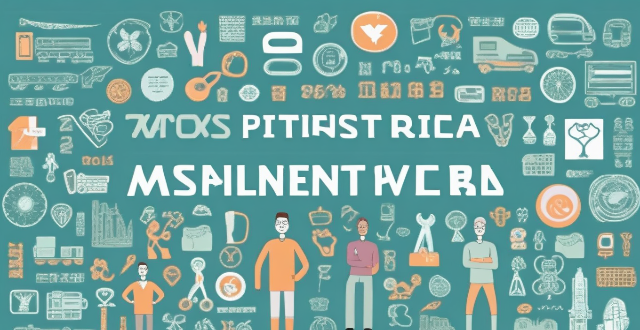This text discusses the potential of sports as a tool for social change and community development. It highlights how sports can break down barriers, promote health and well-being, and contribute to education and personal development. The article also explores how sports can address social issues, empower communities economically, and promote peace and reconciliation. However, it emphasizes the need for equitable resource allocation, accessibility, and sustainability to fully realize the potential of sports in societal transformation.

Can Sports Be Used as a Tool for Social Change and Community Development?
Sports have long been considered a universal language that brings people together, transcending cultural, geographical, and socio-economic barriers. But can it also serve as an instrument for social change and community development? Let's delve into this question by examining the various ways in which sports can influence societal transformation.
The Power of Sports in Unifying Communities
*Breaking Down Barriers*
One of the most significant ways sports contribute to community development is by breaking down barriers. Through shared experiences and common goals, sports can unite individuals from diverse backgrounds, fostering a sense of belonging and mutual respect. This unity often extends beyond the playing field, leading to stronger community bonds and increased social cohesion.
*Promoting Health and Well-being*
Sports also play a crucial role in promoting health and well-being within communities. Regular physical activity has numerous health benefits, including reducing the risk of chronic diseases such as heart disease, diabetes, and obesity. By encouraging participation in sports, communities can improve the overall health of their members, leading to lower healthcare costs and increased productivity.
*Education and Personal Development*
Sports can be a powerful tool for education and personal development. Participation in sports teaches valuable life skills such as teamwork, discipline, perseverance, and leadership. These skills are not only essential for success in sports but also translate to success in other areas of life, including academics and careers.
Using Sports for Social Change
*Addressing Social Issues*
Sports can be used to address various social issues, including gender inequality, racial discrimination, and poverty. For instance, initiatives like Women's World Cup soccer tournaments have helped raise awareness about women's rights and gender equality. Similarly, sports organizations can use their platforms to advocate for racial justice and equality.
*Community Empowerment and Economic Development*
Sports can also contribute to community empowerment and economic development. Local sporting events can boost tourism, creating job opportunities and generating revenue for communities. Additionally, sports facilities can serve as hubs for community activities, providing spaces for education, training programs, and other initiatives aimed at uplifting the community.
*Promoting Peace and Reconciliation*
In conflict-ridden areas, sports can act as a catalyst for peace and reconciliation. By bringing together individuals from opposing sides in a non-threatening environment, sports can help build trust and understanding, laying the groundwork for lasting peace.
Challenges and Considerations
While sports offer immense potential for social change and community development, there are challenges and considerations that must be addressed:
- Resource Allocation: Ensuring that resources are equitably distributed among different communities is crucial to avoid exacerbating existing inequalities.
- Accessibility: Making sports accessible to all members of the community, regardless of their socio-economic status or abilities, is essential for achieving genuine social change.
- Sustainability: Long-term commitment and planning are necessary to ensure that the positive effects of sports on communities are sustainable and enduring.
Conclusion
In conclusion, sports can indeed be used as a tool for social change and community development. By fostering unity, promoting health and well-being, supporting education and personal development, addressing social issues, empowering communities economically, and promoting peace and reconciliation, sports have the potential to transform societies positively. However, it requires thoughtful planning, equitable resource allocation, accessibility for all members of the community, and a commitment to sustainability to realize this potential fully.